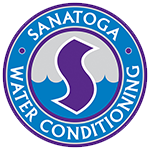Silica
Silica is a compound comprised of silicon and oxygen (Si02). It’s not surprising that many water supplies will contain some amount of silica since silicon it the second most abundant element. Silica is a hard glassy mineral substance, which can occur as sand, quartz, sandstone, or granite.
The earth’s crust contains 80-90% of silicates. Silicates are compounds which contain silicon and oxygen in combination with metals such as aluminum, calcium, magnesium iron and sodium to name a few.
Silica is used to make glass for drinking glasses, bottles, and windows. It is also used in making concrete, so it can leach into water supplies that may be stored in concrete tanks.
What Do The Results Mean? Is It Regulated?
Silica is not regulated as it has not been shown to cause adverse health effects. The silica content of water can vary greatly depending on the source of water. Surface water supplies such as lakes or reservoir usually contain smaller amount of silica, maybe a few parts per million. Groundwater sources depending on the geology, can contain well over 100 parts per million of silica.
How Do You Test For Silica?
EPA method 370.1 is a colorimetric method for testing silica which utilizes molybdate ion in acidic solution, forms a greenish-yellow complex proportional to the dissolved silica concentration, and its absorbance is measured spectrophotometrically.
Laboratories analyzing drinking water samples can utilize various methods which utilize an Inductively Coupled Plasma (ICP).
Water Treatment Options
Silica can be a nuisance in water causing etching in glasses and a hard mineral build-up on fixtures. Additionally high levels of silica can wreak havoc with some treatment systems, specifically those that utilize media. The silica can clog certain medias, which reduces the life and efficiency of those systems. Silica can also be present in a colloidal form which can be more difficult to remove.
Colloidal silica is small particles which do not settle out from the water and can easily pass through membranes. You may need to use a coagulant to cause the silica particles to clump together into bigger particles which can more easily be removed.
Contact Sanatoga Water Conditioning To Learn More Or To Schedule A Consultation.
Your Neighbors Love Their Cleaner, Safer, Better Water!
Our dedication to our customers is continually rewarded with referrals and testimonials about our water quality solutions!
